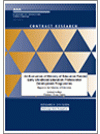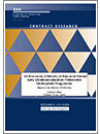The Ministry of Education commissioned this evaluation of the effectiveness of professional development (PD) in early childhood education.
The purpose of the evaluation was to explore how the provision of professional development can be strengthened leading to improved learning outcomes for diverse children participating in ECE settings. The evaluation was framed using three key areas identified by the Ministry of Education:
- An analysis of current PD provision:
- Who is currently accessing professional development?
- Who does not or cannot access professional development and why?
- What range of professional development is available to services?
- What other types of professional development are being accessed in addition to Ministry of Education funded early childhood professional development.
- Future directions for improving MOE-funded PD:
- In what ways can professional development be strengthened to support effective teaching and learning that is inclusive of diverse children, families and whānau?
- In what ways does professional development support centres/services to develop and maintain strong and responsive learning communities?
- How can PD provision be structured and co-ordinated to achieve the best outcomes from the resources and related MOE support structures?
- Effectiveness of PD in supporting and sustaining changes in practice that have a positive impact on children’s learning outcomes:
- How effective are existing professional development programmes in supporting and sustaining shifts in pedagogical practices underpinned by Te Whāriki?
- How effective are the existing professional development programmes in strengthening bicultural understanding and practice in the centre/service curriculum and the organisation?
- In what ways does PD recognise and respond to the diversity of needs of immersion centres/services, rural and isolated services and special circumstance centres/services?
Purpose
The purpose of the evaluation was to evaluate the effectiveness of government funded early childhood education (ECE) professional development in meeting the agreed programme outcome of strengthening teacher, educator, kaiako, faiaoga, faiako and puapi’i capability and quality in practice, in order to extend positive learning outcomes for children, based on the principles of Te Whāriki.
Methodology
Both quantitative and qualitative methodologies were used for this evaluation. The evaluation methodology consisted of document analysis (milestone reports), postal survey, focus group interviews and telephone interviews. A national survey questionnaire was sent to over one-third of all early childhood education services (not including Nga Kohanga Reo) with over-sampling of some regions and service types. Group interviews sought feedback from selected groups around New Zealand including centre/service practitioners and Ministry of Education officials from the four regional offices together with two head office groups. Telephone interviews were conducted with all MOE-funded PD contract directors from the 2004/5 contract year (N=14). Representatives from national umbrella organisations who made themselves available for an interview (N=6) were also interviewed by telephone. In this way triangulation of data from the centres/services’ survey responses was possible.
The survey booklet was distributed in October 2005 to 1439 centres/services. Two reminders were sent during November 2005. All responses up until mid January 2006 were included in the final analysis. The group and individual telephone interviews were undertake in January and February 2006. The draft report was submitted to the MOE in May, with the final report submitted in August 2006.
Fifty-two percent of centre/services surveyed completed and returned their questionnaires. Return rates by service type were more varied with playcentres (43%) and care and education services (47%) having a lower return rate than home-based care services (56%) or kindergartens (67%). Return rates by regions ranged from forty-three to sixty-eight percent.


